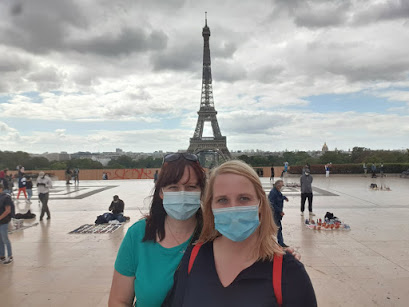When the numbers of new infections started to drop and travel restrictions were slackened, we carefully went on a three-day hike not too far from Cologne. A month later, we joined Else’s family on a family vacation in central Germany. And when Ilse’s birthday approached and travel in Europe seemed okayish again, Else planned a birthday present that would bring us to Paris. Yet, during summer time when everyone goes on vacations (and apparently many don’t care to wear their face masks), infections were bound to rise again.
Not surprisingly, a couple of days before our journey to Paris, Else had to reveal the destination of our surprise vacation so that we could discuss together whether we should go or stay at home: infections in France, particularly in Paris, reached critical numbers. We finally decided to go, but we also decided to stay as safe as possible. We wore our face masks almost all of the time (okay, this one was for everyone else), we walked everywhere instead of using public transportation, we didn’t visit museums or any other inside sights, we always sat outside the few times we went to a restaurant, café, or bar.
We often are annoyed with careless people around us. The past six months have (or should have) taught us that COVID-19 is dangerous and potentially fatal. Still, so many people disregard the dangers and choose their own comfort. And traveling, of course, is an unnecessary luxury at times like these. But if all of us stand together, the virus will be gone sooner than later. And until then, traveling is possible—but we need to be careful and can’t do everything we would love to.


Comments
Post a Comment